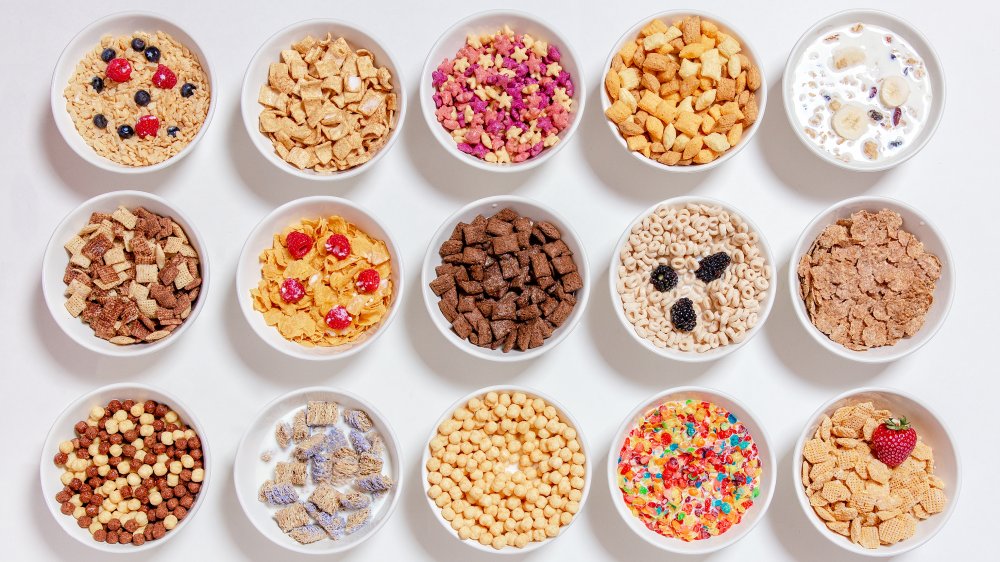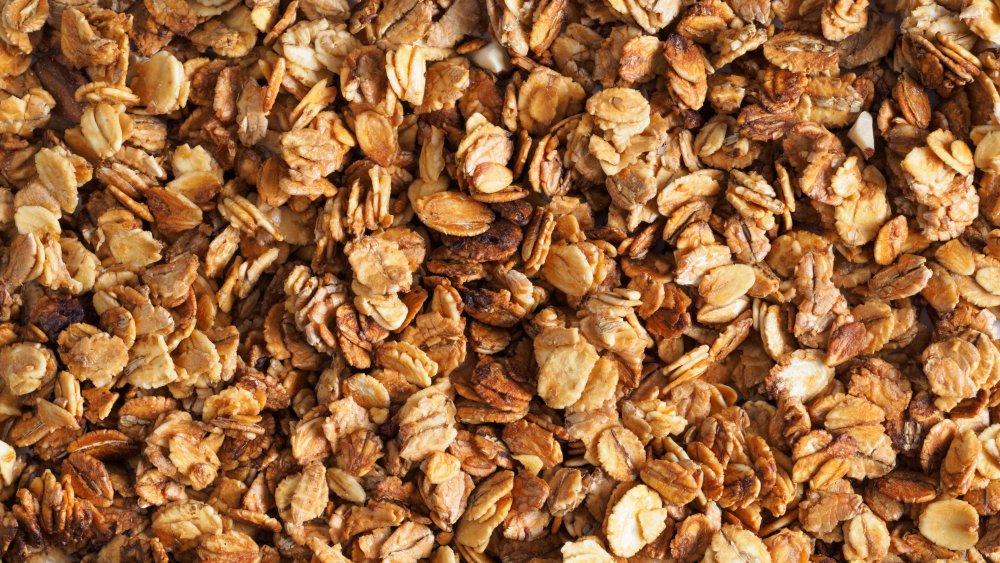You Should Never Buy Cereal From Aldi. Here's Why
Cold cereal is an easy and convenient way to start the day because there's so little prep and obviously no cooking. All you have to do is pour and go. But, many kinds of cereals that taste amazing are made with tons of sugar, which makes them quite unhealthy. Eating too much sugar, especially so early in the day, can cause you to have a sugar crash soon after. When this happens, your body typically starts craving another sugary, carb-heavy snack or meal. If this cycle keeps going, it can lead to vast overeating and consuming more sugar than recommended. If it's a daily habit too, all the extra sugar can lead to a higher risk of heart disease, cancer, and diabetes (via Healthline).
Unfortunately, even though the store is the ideal stop for countless grocery items, most of Aldi's cereals are very high in sugar. In fact, Choice reviewed 170 kinds of cereals including several from Aldi. Most kinds from Aldi were ranked around 2.5 out of 5. Two Aldi cereals were healthy enough to get a 5-star rating. But the lesson learned is that even cereal with a name that sounds healthy, like Power Grain, and Honey Nut Corn Flakes, might not be.
Read Aldi's cereal labels
If you are a serious cereal consumer, then consider buying your boxes from other grocery stores with more options that are lower in sugar and higher in fiber. However, if you are short on time or just don't want to make another stop to buy a single box of the breakfast food, consider sticking to one of the two Aldi cereals that ranked highly. Just remember to double-check the labels to be sure you know the nutritional content of any kind of cereal you plan to purchase.
Even if you tend to eat the same cereal throughout the years because you like the taste and feel confident in the nutritional information, you still should check the label. Occasionally, companies change the recipe. For example, one of Aldi's cereals, Harvest Morn Choco Rice, saw an 18.2 percent increase in sugar over the course of just three years —between 2012 and 2015 (via The Telegraph).
So be careful with which cereals you pick, read the labels closely, and remember to look for increases in added sugar over time, if you shop at Aldi, or any other store for that matter.

